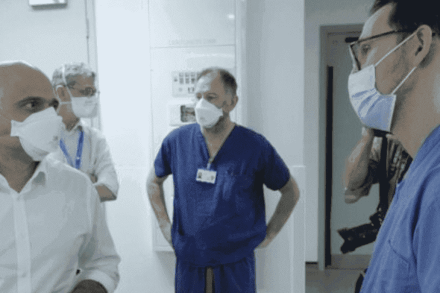Priti’s drugs war goes up in smoke
One of the many things Priti Patel brought with her to the Home Office was a renewed focus on the ‘war on drugs’. Since her appointment in 2019, the Witham MP has made her distaste for substance abuse clear, accompanying police on house raids, deporting foreign dealers, declaring war on ‘county lines’ gangs and threatening ‘tough action’ on laughing gas. But is all that being let down by Dominic Raab and his colleagues over at the Ministry of Justice? For the number of drug incidents in Britain’s prisons have skyrocketed by more than 350 per cent over the last seven years, with MOJ figures published this week showing the total recorded in Britain’s prisons has




















